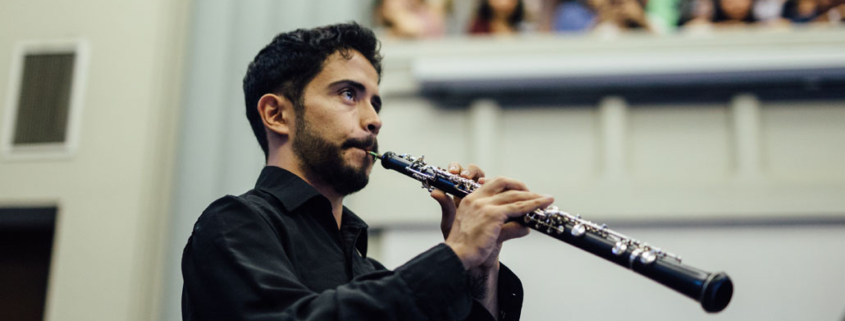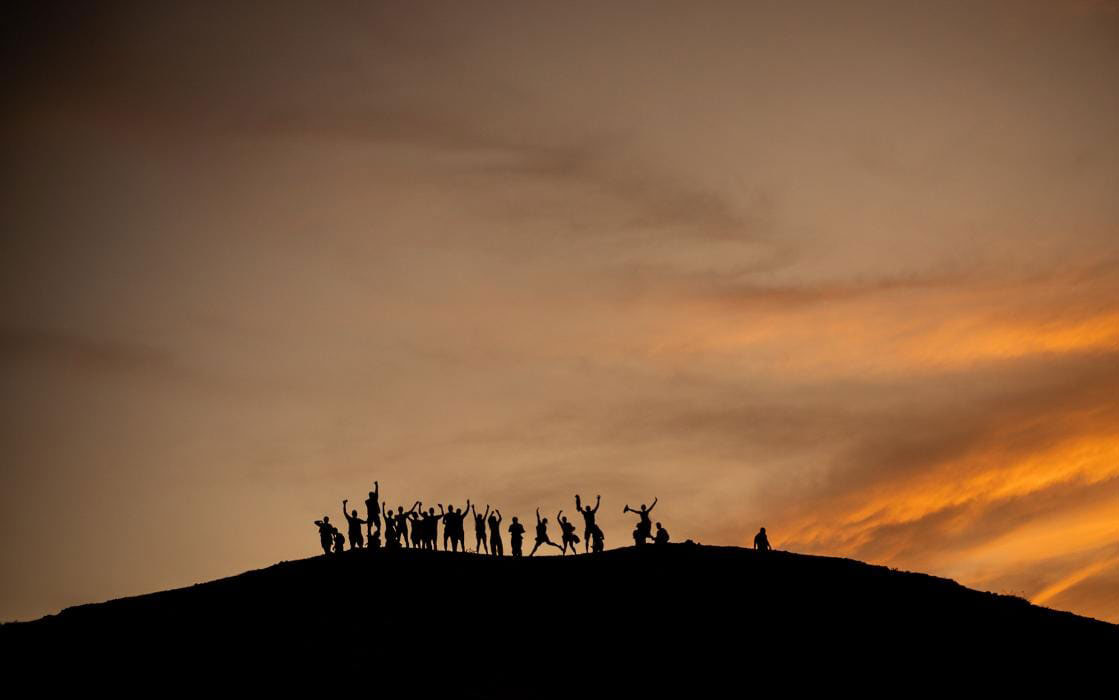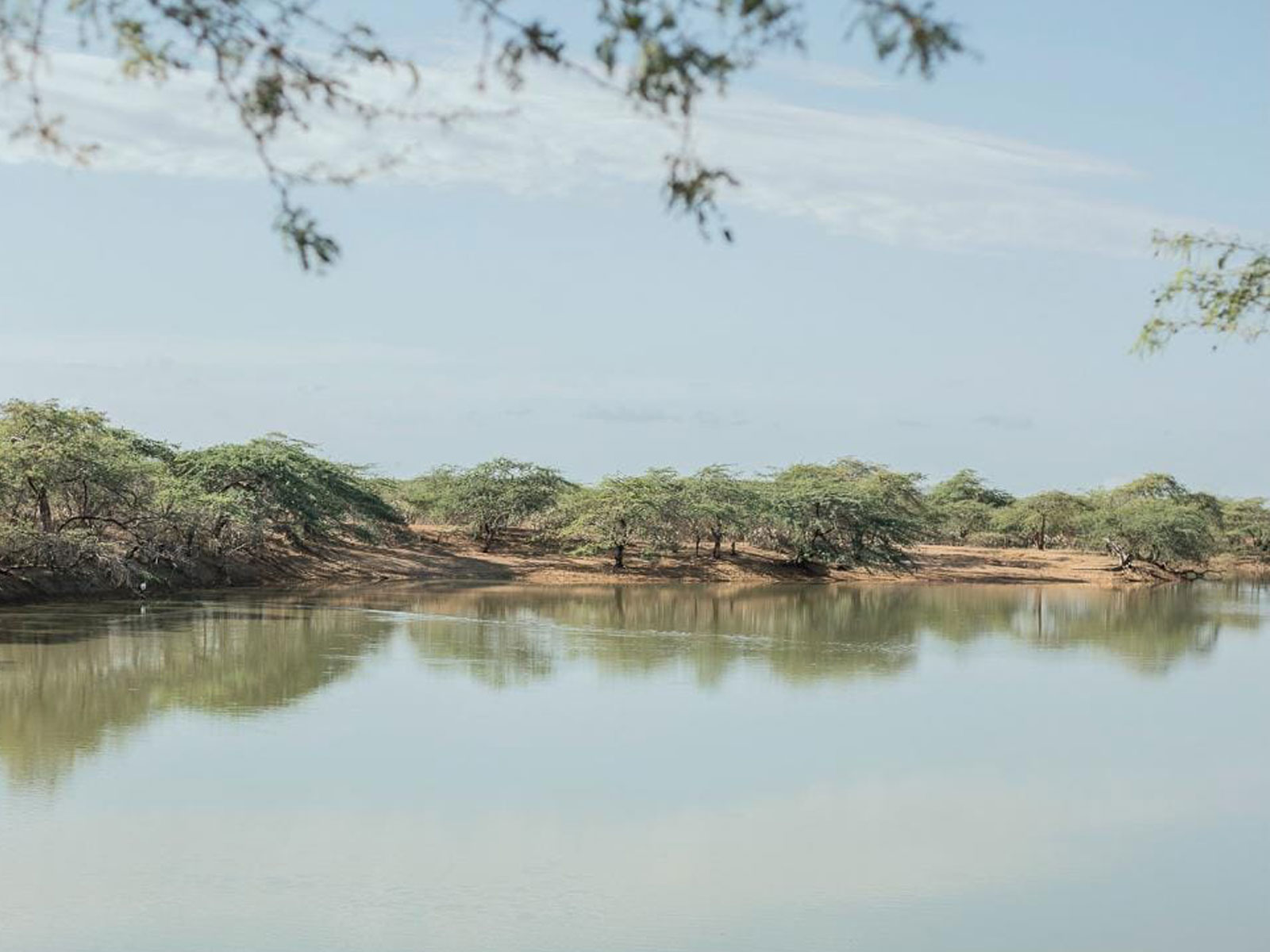Sol-idarity Key
The confinement measures made us take refuge at home for a year and a half and made it impossible for human beings to enjoy the outside world, except for some animals that went out to occupy the streets in search of food, others to enjoy the low pollution. After completing the quarantine and endless hours of recording to broadcast virtual concerts, the oboist Cristian Cardenas He felt the need to do something beyond music, he wanted to walk—an everyday activity that we were deprived of during the pandemic. For him, walking, in addition to its benefits for physical health, helps reflect and mental well-being.
He still remembers the steps he took in the countryside to get to his school, because he studied in a rural school, and the endless hours walking throughout Bogotá when he needed to have internal dialogues, “I think I walked through the entire city,” says Cárdenas.
The musician has been hiking for five years, it is an activity that he loves because it allows him to have a healthy relationship with the planet; but during the pandemic he had to interrupt it. Cristian is a native of Bogotá, he says he loves Medellín for the climate, for its hills and mountains, “discovering its landscapes blew my mind,” he says with emotion.
Trip
And that need to return to the outside world, two years ago, led him to have one of the best experiences of his life in La Guajira, a six-day adventure that began in the municipality of Uribia and ended in Punta Gallinas. A trip that transformed his life.
“We slept in a rancheria, there are no hotels there. There are only rancherías that provide that service, there is no internet. There is electricity because they have a generator, so they turn it on during certain hours of the day, the same with water…we slept in a hammock.”
For the oboist, the landscapes that can be seen are amazing, the intense yellow color predominates, the plains are immense and in the middle of the desert you can see the traditional Wayúu rancherías, where children take the opportunity to put up small “checkpoints” and ask for toys, cookies or sweets. to the tourists. All this natural wealth contrasts with the poverty experienced there, between the lack of drinking water, extractivism, wind farms and the humanitarian crisis. The Wayúu survive dispossession and food insecurity; hunger strikes them.
The Wayúu* people have struggled with the natural adversities of the Guajira region, a land of sun, sand and wind, in addition to facing discrimination, racism, marginalization and violence by some non-indigenous inhabitants of the region. The DANE Census reported approximately 270,413 people who recognize themselves as belonging to the Wayúu people, a figure that positions this indigenous people as the largest in the country.
“It was a seven-hour journey in the desert, all the time children stopped us to ask for food. It shocked me a lot because we were going for a walk, but we found a very harsh reality even though the landscapes were beautiful; It was something very strong. I feel that the true value of that walk was the spirit of solidarity that was awakened in me. I saw how the children even fought over food and toys. I feel that we are obliged to establish a policy of solidarity with others that helps improve the quality of life of these inhabitants, since they are people who are abandoned and my duty as a citizen is not to be oblivious to that reality. I think that after music, my mission in life is to help those most in need.”
And it was this experience during this trip that planted a feeling of solidarity in Cristian Cárdenas, a virtue that will motivate him to continue walking through the country to get to know its landscapes and be in solidarity with the communities that inhabit them. He is already preparing to tour the Pacific and the Amazon, he says: “solidarity is key to supporting the most vulnerable in our country to have a better life.”
Music
Cristian Cárdenas has been an oboe player with the Medellín Philharmonic Orchestra since 2018. He is part of a musical family from Pasca, Cundinamarca. He has two siblings, Valentina, a violinist, and Julián, a harpist, who currently live, study and work in Spain and China, respectively; and with whom in 2010 he had the opportunity to share the same stage with the Batuta Orchestra of Bogotá. “Since then I never met them again, it would be very exciting to share music in concert again,” says the oboist, a graduate of the National University of Colombia, with two master's degrees in interpretation and orchestra from the Musikschule Trossingen, Germany.
“Composers use the oboe and the English horn in very special moments of the works, many times they are the most melancholic and beautiful in music where these instruments have a great solo. Our job is to move the public.”
* Also known as Guajiro, Wayu, Uáira, Waiu. The word Wayúu is a self-designation used by indigenous people and translates “person” in general, indigenous of one's own ethnic group, ally and also, the partner (husband or wife).








